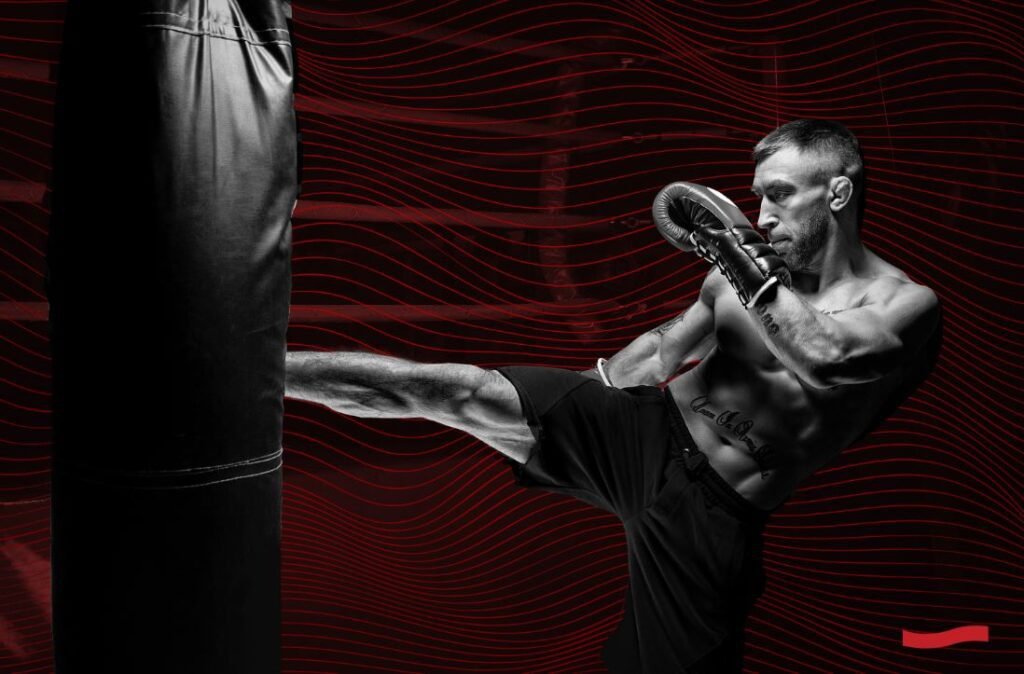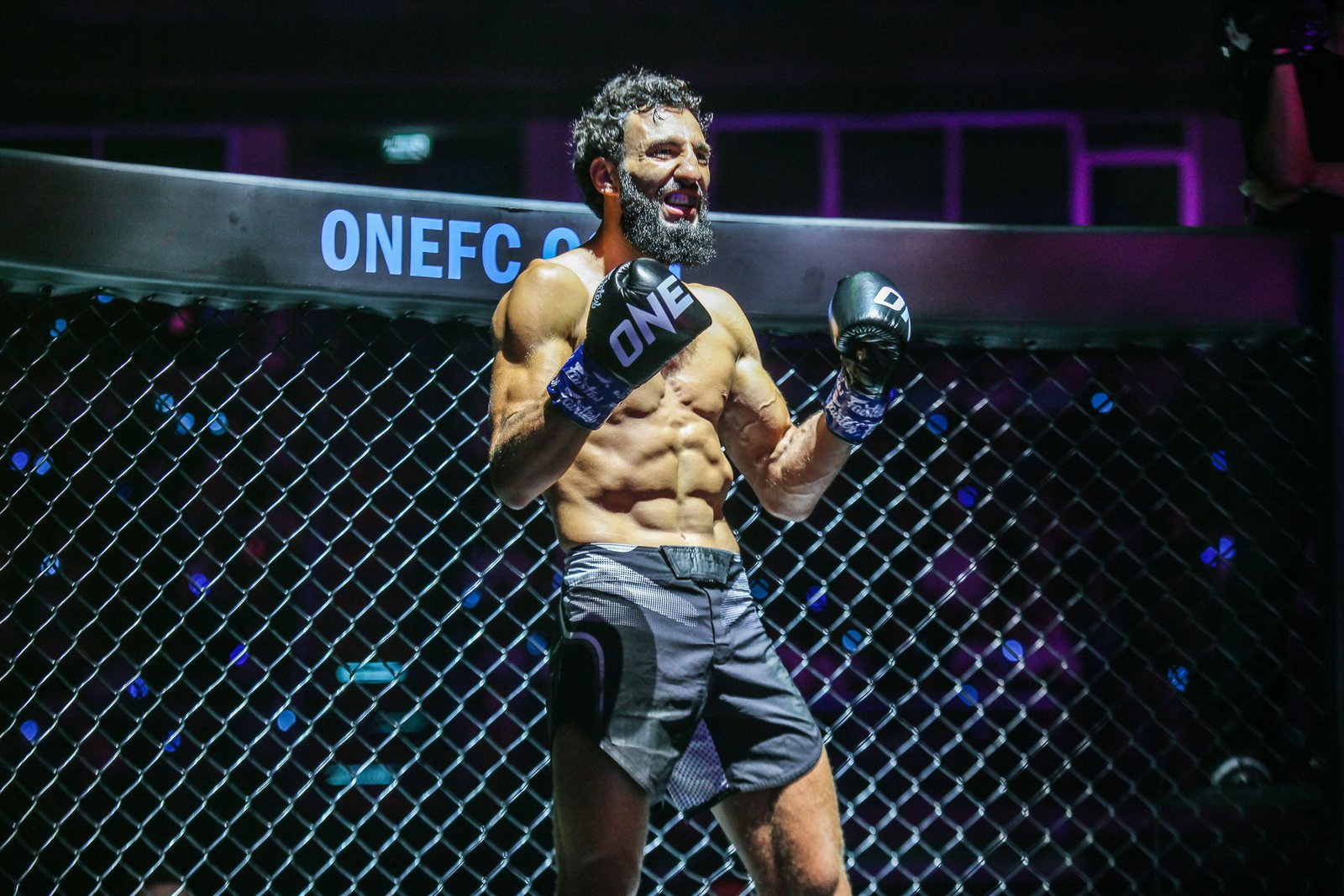In the high-intensity world of MMA fighting, rest and recovery are crucial for maintaining peak performance and preventing injuries. As an MMA fighter, you push your body to its limits, constantly challenging yourself physically and mentally. But how can you ensure that you are giving your body the rest it needs to heal and recharge? In this article, discover the best strategies and techniques that will help you optimize your rest and recovery as an MMA fighter, allowing you to come back stronger and ready to conquer the octagon.
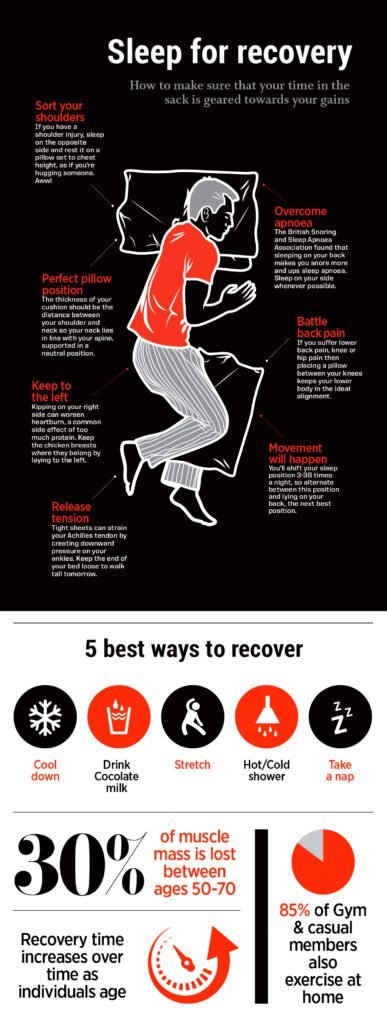
1. Importance of Rest and Recovery
Understanding the need for rest and recovery in MMA
When it comes to MMA, the importance of rest and recovery cannot be overstated. Engaging in intense training sessions and fights takes a toll on the body, both physically and mentally. Rest and recovery are crucial for allowing the body to heal, rebuild, and prepare for future training sessions and bouts. Without adequate rest, you risk not only a decline in performance but also an increased risk of injuries.
Impact of inadequate rest on performance and injury risk
If you push yourself too hard without sufficient rest, you may notice a decrease in your performance. The body needs time to repair and replenish itself after intense physical activity. Without this recovery period, your muscles may become fatigued, leading to decreased strength and endurance. Moreover, inadequate rest can compromise your immune system, making you more susceptible to illnesses and infections. Additionally, the risk of injuries, such as strains, sprains, and even fractures, significantly increases when you don’t give your body enough time to recover.
2. Quality Sleep
Benefits of sufficient sleep for MMA fighters
One of the most important aspects of rest and recovery for MMA fighters is quality sleep. Sleep plays a vital role in various bodily functions, including muscle repair, hormone regulation, and cognitive function. Sufficient sleep allows your body to release growth hormone, which aids in muscle growth and repair. It also helps regulate insulin levels and promote fat loss. Furthermore, quality sleep enhances mental focus and reaction time, critical attributes for any fighter.
Optimal sleep duration and quality
To reap the full benefits of sleep, MMA fighters should aim for a recommended sleep duration of 7 to 9 hours per night. However, it’s not just about quantity; the quality of sleep is also important. Creating a conducive sleep environment by keeping the room dark, quiet, and cool can help improve the quality of your sleep. Investing in a comfortable mattress and pillows that provide proper support can further enhance your sleep experience.
Creating a conducive sleep environment
To create a conducive sleep environment, make sure your bedroom is free from distractions like electronic devices, noise, and excessive light. Consider using blackout curtains or an eye mask to block out any unwanted light. Additionally, using earplugs or a white noise machine can help mask any disruptive sounds. It’s also helpful to establish a relaxing bedtime routine, such as reading a book or taking a warm bath, to signal to your body that it’s time to wind down.
Establishing a consistent sleep schedule
In addition to creating a conducive sleep environment, establishing a consistent sleep schedule is crucial for optimizing rest and recovery. Try to go to bed and wake up at the same time every day, even on weekends. This regular sleep routine helps regulate your body’s internal clock, making it easier to fall asleep and wake up feeling refreshed. Avoiding naps close to bedtime and limiting caffeine intake in the afternoon and evening can also contribute to better sleep quality.
3. Active Rest
Engaging in low-impact activities for active recovery
While complete rest is essential, incorporating active rest into your recovery routine can also be highly beneficial. Active rest refers to engaging in low-impact activities that promote blood flow and muscle tissue repair without placing excessive stress on your body. This can include activities like light jogging, cycling, swimming, or practicing yoga.
Benefits of active rest for muscle repair and mental rejuvenation
Engaging in active rest helps promote muscle repair by increasing blood flow to the muscles, which brings in necessary nutrients and removes waste products. It also aids in flushing out lactic acid and reducing muscle soreness. Additionally, active rest allows for mental rejuvenation, giving you a break from the intense mental focus required during training and competition. It can help alleviate stress, improve mood, and enhance overall well-being.
Examples of suitable active rest exercises and techniques
When incorporating active rest into your recovery routine, choose exercises and activities that are low-impact and focus on gentle movements. For example, you could try light jogging or brisk walking to get your blood flowing and aid in muscle repair. Swimming is another excellent option as it provides a full-body workout while being easy on the joints. Yoga and stretching exercises can help improve flexibility, relieve muscle tension, and promote relaxation. Remember, the goal of active rest is to facilitate recovery, so avoid high-intensity activities that may further strain your muscles.
4. Proper Nutrition
Fueling the body with essential nutrients for recovery
Proper nutrition plays a vital role in the rest and recovery process for MMA fighters. Fueling your body with the right nutrients allows for optimal muscle repair, replenishment of energy stores, and overall recovery. It’s important to focus on consuming a well-balanced diet that includes a variety of fruits, vegetables, lean proteins, whole grains, and healthy fats.
Importance of macronutrients and micronutrients in MMA
Macronutrients, including carbohydrates, proteins, and fats, are the foundation of a fighter’s diet. Carbohydrates provide energy for intense training sessions, proteins aid in muscle repair and growth, and fats support hormone production and joint health. Additionally, paying attention to micronutrients, such as vitamins and minerals, is essential for proper functioning of the body and aiding in recovery processes.
Post-training/post-fight nutrition strategies
After training sessions or fights, it’s crucial to refuel your body with the right nutrients to kickstart the recovery process. Consuming a combination of carbohydrates and proteins within the first 30 to 60 minutes post-exercise can help replenish glycogen stores, reduce muscle breakdown, and promote muscle repair. Opt for foods like lean meats, fish, eggs, whole grains, fruits, and vegetables. Hydration is also key in the post-training/post-fight period, so don’t forget to replenish fluids with water or sports drinks.
Hydration tips and the role of water in recovery
Hydration is often overlooked but is a crucial component of recovery for MMA fighters. Water plays a vital role in various bodily functions, including joint lubrication, nutrient transport, and temperature regulation. It’s essential to maintain proper hydration levels both during and after training sessions. Aim to drink water consistently throughout the day and pay attention to your body’s hydration cues during intense physical activity. Sports drinks can be beneficial for replacing electrolytes lost through sweat during extended training sessions or fights.

5. Foam Rolling and Self-Myofascial Release
Understanding the benefits of foam rolling
Foam rolling, also known as self-myofascial release, is a technique that involves using a foam roller to apply pressure to specific muscles or areas, aiding in self-massage and releasing tension. This form of self-treatment can offer various benefits for MMA fighters during the recovery process.
Targeted muscle release techniques for MMA fighters
Foam rolling can be particularly useful for targeting tight muscles, releasing knots, and improving overall muscle flexibility. MMA fighters often engage in intense training that puts stress on their muscles, resulting in the formation of adhesions and trigger points. Foam rolling helps break down these adhesions, increasing blood flow to the muscles and promoting faster recovery.
Incorporating foam rolling into a recovery routine
To incorporate foam rolling into your recovery routine, focus on targeting the muscles that are most prone to tightness and soreness after training or fights. These typically include the back, glutes, quads, hamstrings, and calves. Spend about 1-2 minutes on each muscle group, applying gentle pressure and moving the foam roller slowly along the muscle fibers. Remember to breathe deeply and relax into the pressure to maximize the benefits. Foam rolling can be done both before and after workouts or as a standalone recovery practice.
6. Cold Therapy
The science behind cold therapy and its effects on recovery
Cold therapy, including ice baths and cryotherapy, has been used for decades as a popular method for enhancing recovery. The application of cold temperatures to the body helps reduce inflammation, alleviate muscle soreness, and facilitate the recovery process.
Utilizing ice baths and cryotherapy for muscle inflammation
Ice baths and cryotherapy involve exposing the body to extremely cold temperatures, which results in vasoconstriction and numbing of the tissues. This vasoconstriction helps reduce inflammation, swelling, and muscle soreness by limiting blood flow to the affected areas. Ice baths typically involve immersing the body in a tub filled with cold water and ice, while cryotherapy utilizes specialized chambers or localized devices that emit very cold air.
Alternatives to cold therapy for recovery
If ice baths or cryotherapy are not accessible or preferred, there are other alternatives available for achieving similar effects. Cold packs or ice packs can be applied directly to specific muscles or areas of inflammation to alleviate soreness and reduce swelling. Contrast therapy, which involves alternating between hot and cold treatments, can also be effective in promoting recovery by increasing blood flow and reducing inflammation. Experiment with these options to find what works best for you and your body.
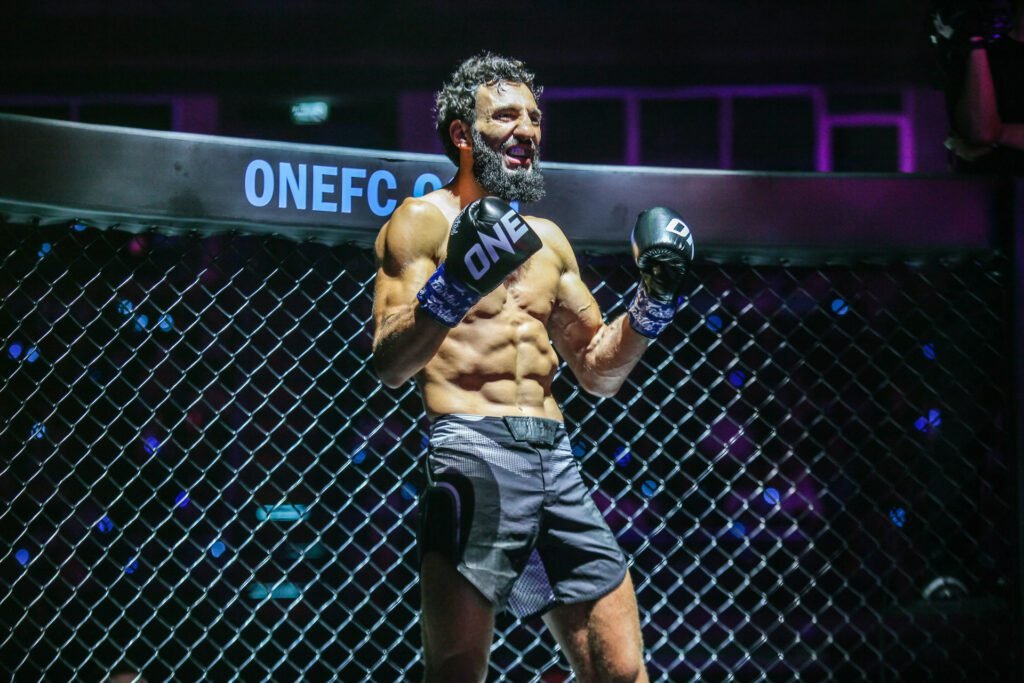
7. Active Stretching and Mobility Work
Importance of maintaining flexibility and mobility for MMA fighters
Maintaining flexibility and mobility is crucial for MMA fighters. It allows for a wider range of motion, increases joint stability, and aids in injury prevention. Incorporating active stretching and mobility work into your recovery routine can help improve flexibility, alleviate muscle tightness, and enhance overall performance.
Dynamic stretching exercises to enhance recovery
Dynamic stretching involves moving your muscles and joints through a full range of motion, gradually increasing the intensity of the stretch. This type of stretching is particularly beneficial for warming up before training or fights, but it can also be incorporated into your recovery routine. Examples of dynamic stretches include leg swings, arm circles, walking lunges, and torso twists.
Incorporating mobility work into a post-training routine
In addition to dynamic stretching, incorporating mobility work into your post-training routine can help release muscle tension and improve joint mobility. Techniques such as foam rolling, using mobility balls, or performing mobility exercises with resistance bands are effective ways to target specific areas of tightness or restriction. Focus on areas that commonly experience tightness in MMA fighters, such as the hips, shoulders, and spine. Build a routine that works for you, based on your individual needs and areas of concern.
8. Mental Rest and Relaxation Techniques
Recognizing the impact of mental fatigue on performance
The rest and recovery process for MMA fighters not only involves physical aspects but also mental aspects. Mental fatigue can have a significant impact on performance, focus, and overall well-being. Taking time to rest and rejuvenate mentally is just as important as physical recovery.
Implementing relaxation techniques for mental recovery
There are various relaxation techniques that can be implemented to promote mental recovery. Breathing exercises, meditation, and mindfulness practices are effective ways to calm the mind, reduce stress levels, and improve mental clarity. Deep breathing exercises, such as diaphragmatic breathing, can activate the body’s relaxation response and help quiet the mind. Meditation and mindfulness practices involve focusing your attention on the present moment, allowing you to let go of mental stressors and find inner calm.
Breathing exercises, meditation, and mindfulness practices
To incorporate relaxation techniques into your recovery routine, experiment with different breathing exercises, meditation apps, or guided mindfulness practices. Find a quiet and comfortable space where you can relax and focus on your breath or engage in meditation. Start with just a few minutes each day, gradually increasing the duration as you become more comfortable. Even short periods of mental rest can make a significant difference in your overall well-being and performance.
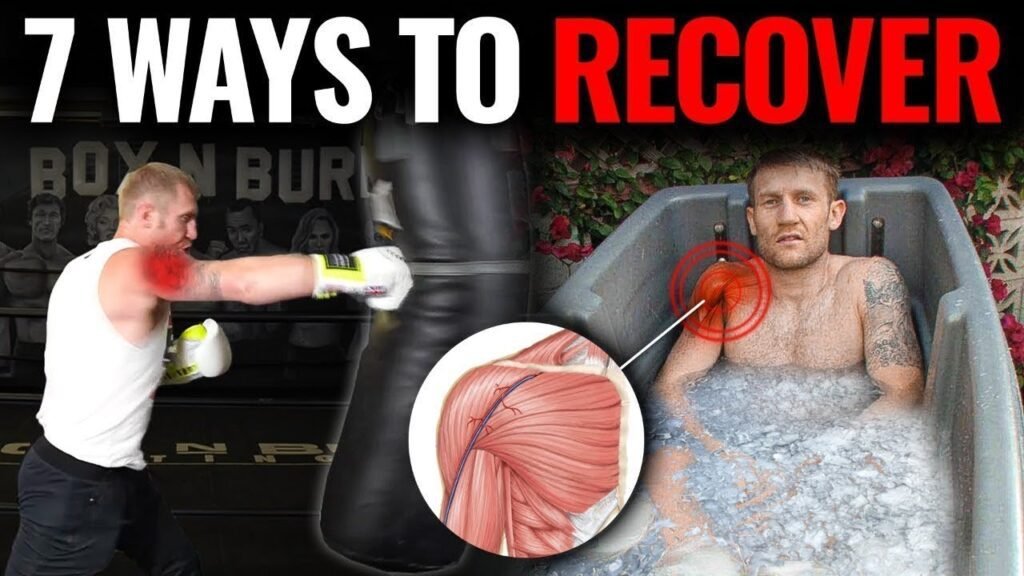
9. Sports Massage and Physical Therapy
Benefits of professional sports massage for MMA fighters
Sports massage is a specialized form of massage therapy that focuses on addressing the specific needs of athletes. Seeking out professional sports massage can provide numerous benefits for MMA fighters during the recovery process. Sports massage aids in muscle relaxation, improves blood circulation, alleviates muscle soreness, and reduces the risk of injury. It can also help identify and address any imbalances or areas of tension in the body.
Utilizing physical therapy for injury prevention and recovery
In addition to sports massage, incorporating physical therapy into your recovery routine can be highly beneficial. Physical therapy focuses on assessing and improving movement, function, and performance. A physical therapist can help identify any imbalances, muscular weaknesses, or movement dysfunctions that may be contributing to your injury risk or limiting your performance. They can provide specific exercises and interventions to address these issues and aid in the recovery process.
Finding qualified professionals and incorporating regular sessions
Finding qualified professionals in sports massage and physical therapy is important to ensure you receive the highest quality care. Seek recommendations from trusted sources, such as fellow athletes or trainers, and consider working with individuals who have experience working with MMA fighters. Incorporating regular sports massage sessions and physical therapy visits into your recovery routine can help optimize your performance, prevent injuries, and enhance overall well-being.
10. Listening to the Body and Individualizing Recovery
Understanding the importance of self-awareness
When it comes to rest and recovery, it’s crucial to listen to your body and pay attention to its signals. Each individual may have different recovery needs based on factors such as training intensity, genetics, age, and overall health. Building self-awareness and recognizing when your body needs rest or recovery is essential for optimizing performance and preventing overtraining.
Adapting recovery strategies based on individual needs and goals
While the general principles of rest and recovery apply to all MMA fighters, it’s important to adapt and tailor them to your individual needs and goals. Experiment with different recovery strategies and take note of how your body responds. Some individuals may benefit more from active rest, while others may require more emphasis on sleep or specific recovery modalities.
Creating a personalized recovery plan for optimal results
To create a personalized recovery plan, consider working with a qualified strength and conditioning coach or sports nutritionist who can help assess your individual needs and goals. They can provide guidance on sleep optimization, nutritional strategies, training volume, and recovery modalities based on your specific requirements. Remember, everyone’s recovery journey is unique, and by listening to your body and individualizing your approach, you can maximize your rest and recovery for optimal performance in MMA.
